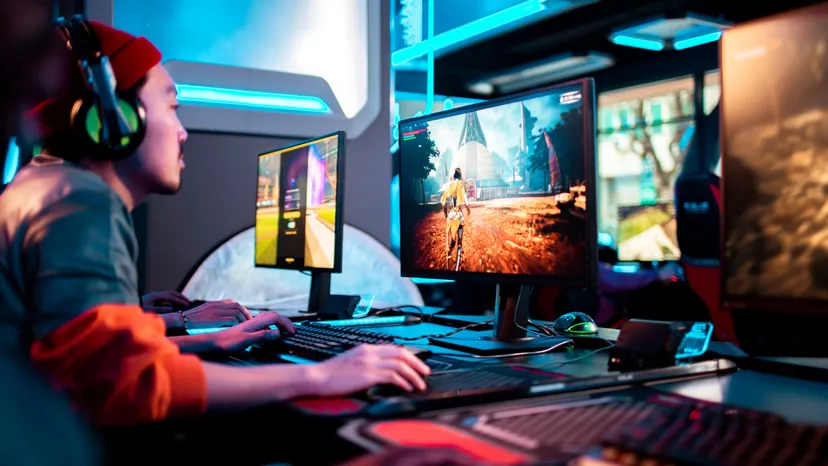Gaming has become one of the most significant cultural and economic forces of the 21st century. What began with simple arcade machines and pixelated consoles has grown into a multi-billion-dollar industry that rivals film and music combined. From competitive esports arenas to narrative-driven single-player titles, gaming offers experiences for players of every age and background.
The rise of online platforms has further expanded access. Players can now interact with global communities, take part in large-scale tournaments, or explore independent games crafted by small studios. This variety has created a broad spectrum of opportunities for entertainment and social connection.
Interestingly, the gaming sector often intersects with other forms of online leisure. Just as streaming services allow players to share content in real time, communities have developed around more traditional activities in a digital setting. A good example is the way platforms promote responsible play with options such as UK-licensed bingo, where regulation and trust provide reassurance for participants. This crossover shows how gaming culture influences, and is influenced by, wider digital habits.
The Evolution of Gaming Platforms
Over the decades, gaming has shifted across several major platforms, each shaping how people interact with their favourite titles:
- Arcades – The birthplace of classics like Pac-Man and Space Invaders.
- Home Consoles – Systems such as the Nintendo Entertainment System (NES) and PlayStation brought gaming into households worldwide.
- PC Gaming – Popular for strategy titles, modding communities, and cutting-edge graphics.
- Mobile Gaming – Casual titles such as Candy Crush and Clash of Clans introduced gaming to entirely new audiences.
- Cloud Gaming – Emerging platforms like Xbox Cloud Gaming and GeForce Now allow players to access titles without high-end hardware.
Key Trends Driving the Industry
The modern gaming industry is shaped by trends that influence both developers and players:
- Esports – Competitive gaming has become a global spectacle, with professional players earning sponsorships and competing for million-dollar prizes.
- Virtual Reality (VR) – Immersive headsets such as Meta Quest 3 and PlayStation VR2 create entirely new ways to experience games.
- Cross-Platform Play – Gamers can connect across consoles, PCs, and mobile devices, breaking down traditional barriers.
- Indie Development – Smaller studios are pushing creative boundaries with unique storytelling and mechanics.
- Subscription Services – Platforms like Xbox Game Pass and PlayStation Plus change how players access content.
The Role of Community in Gaming
Community is at the heart of gaming culture. Players connect through forums, live streams, and multiplayer titles, building friendships that span continents. Popular platforms such as Twitch and YouTube Gaming have turned gaming into a spectator sport, where personalities and creators gather large followings.
Important aspects of gaming communities include:
- Communication – Voice chat, messaging, and forums create constant interaction.
- Collaboration – Teams and guilds work together for shared goals.
- Competition – Leaderboards and rankings keep players striving for progress.
- Content Creation – From gameplay highlights to fan art, user-generated content strengthens the culture.
Challenges and Opportunities
Like any major industry, gaming faces both opportunities and challenges:
- Regulation and Safety – Age ratings, parental controls, and fair play rules protect players.
- Inclusivity – Expanding representation across gender, culture, and ability makes gaming more accessible.
- Monetisation – In-game purchases and loot boxes raise questions about ethics and transparency.
- Sustainability – The push for energy-efficient servers and digital distribution reflects environmental concerns.
Looking Ahead
The future of gaming is set to be diverse and dynamic. With rapid advances in technology, we can expect more immersive experiences, broader accessibility, and deeper cultural relevance. Whether through esports stadiums filled with cheering fans, mobile games played on commutes, or the next wave of VR adventures, gaming will continue to influence how people connect and spend their free time.







